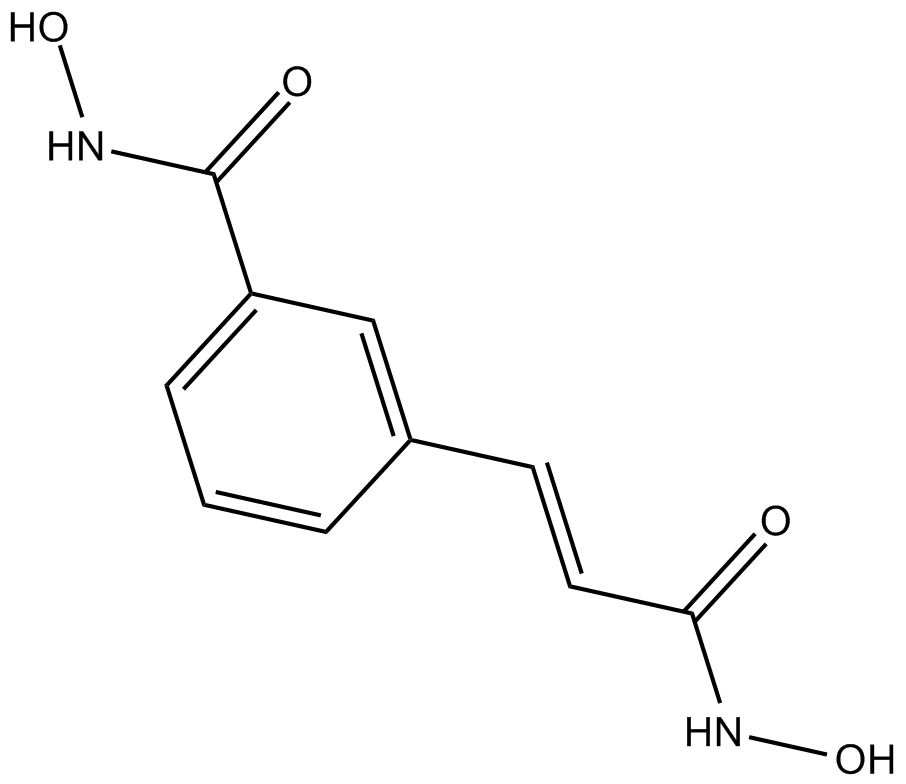CBHA (Synonyms: Histone Deacetylase Inhibitor II,m-Carboxycinnamic Acid bis-Hydroxamide) |
| Catalog No.GC14058 |
CBHA est un puissant inhibiteur de HDAC, présentant des valeurs ID50 de 10 et 70 nM in vitro pour HDAC1 et HDAC3, respectivement. Le CBHA induit également l'apoptose et supprime la croissance tumorale.
Products are for research use only. Not for human use. We do not sell to patients.

Cas No.: 174664-65-4
Sample solution is provided at 25 µL, 10mM.
CBHA is a potent and selective inhibitor with ID50 values of 0.01 and 0.07 μM for HDAC1 and HDAC3, respectively [1].
Histone deacetylases (HDACs) are a class of enzymes that remove acetyl groups from lysine amino acid on histone, allowing the histones to wrap the DNA more tightly. HDAC inhibitors hyperacetylate histones and increase transcriptional activity in target genes. HDAC inhibitors have both apoptotic and differentiating effects on various tumor cells [2].
M-carboxycinnamic acid bishydroxamide (CBHA) is a potent and selective HDAC inhibitor. CBHA is a hybrid polar compound that is synthesized to induce terminal differentiation and/or apoptosis in various transformed cells. In MEL cells, CBHA caused accumulation of acetylated histone H4 [1]. In neuroblastoma cell lines, CBHA induced acetylated histone H3 and H4 accumulation. CBHA also led to extensive cell death with LD50 ranged between 1 μM and 4 μM, and induced apoptosis [2].
In human neuroblastoma xenograft SCID mice, CBHA (100 mg/kg and 200 mg/kg) resulted in reductions of average final tumor volume of ~50% and 75%, respectively [3].
References:
[1]. Richon VM1, Emiliani S, Verdin E, et al. A class of hybrid polar inducers of transformed cell differentiation inhibits histone deacetylases. Proc Natl Acad Sci U S A. 1998 Mar 17;95(6):3003-7.
[2]. Glick RD1, Swendeman SL, Coffey DC, et al. Hybrid polar histone deacetylase inhibitor induces apoptosis and CD95/CD95 ligand expression in human neuroblastoma. Cancer Res. 1999 Sep 1;59(17):4392-9.
[3]. Coffey DC, Kutko MC, Glick RD, et al. The histone deacetylase inhibitor, CBHA, inhibits growth of human neuroblastoma xenografts in vivo, alone and synergistically with all-trans retinoic acid. Cancer Res. 2001 May 1;61(9):3591-4.
Average Rating: 5 (Based on Reviews and 5 reference(s) in Google Scholar.)
GLPBIO products are for RESEARCH USE ONLY. Please make sure your review or question is research based.
Required fields are marked with *




















